Purchasing a diamond can be quite overwhelming, even after you’ve learned about the essential aspects like the diamond 4C’s. But there’s one more factor you should consider: understanding the distinction between a diamond appraisal and a diamond certification.
Now, you might wonder, which one is better – a diamond appraisal or a diamond certification?
The truth is, neither is superior to the other, as both play crucial roles when buying or selling a diamond.
In this article, we’ll delve into the key differences between a diamond appraisal and a diamond certification, providing you with a deeper understanding of the diamond appraisal process.
So, let’s not waste any more time and explore the topic further!
DESIGN YOUR OWN ENGAGEMENT RING: START WITH A SETTING OR START WITH A DIAMOND. IT’S REALLY UP TO YOU!
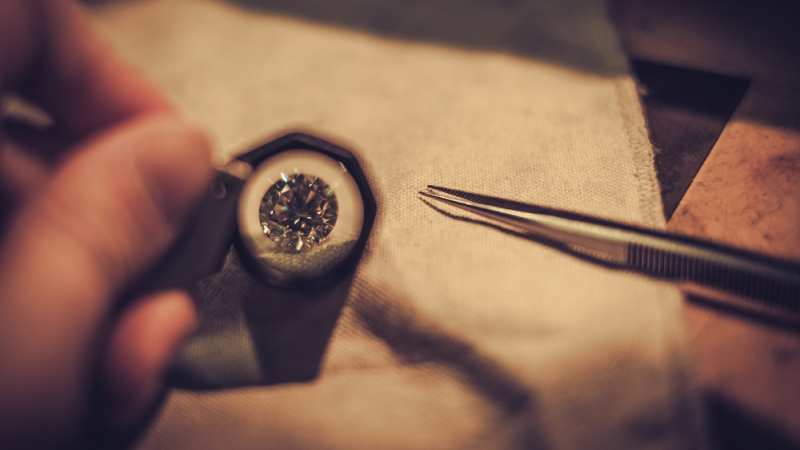
What Are Diamond Appraisals?
Diamond appraisals are essential documents that provide a detailed description of a diamond’s physical attributes, assess its quality, and assign a value to the stone. They differ from generic jewelry appraisals because they require specialized knowledge to accurately evaluate a diamond’s characteristics and determine its worth.
Expert appraisers, ideally certified gemologists with qualifications from organizations like GIA, conduct diamond appraisals. They evaluate the diamond’s 4C’s, examine the ring, and compare it to similar pieces in order to provide a comprehensive assessment.
A reputable appraiser should offer:
- A clear explanation of their appraisal method, including any laboratory work or measurements they plan to conduct.
- Valid credentials demonstrating their qualifications to appraise diamonds.
- A thorough understanding of why the diamond is being appraised, ensuring the appropriate type of appraisal is provided.
- Documentation containing a sealed statement of purpose and value, signed by the appraiser.
Diamond appraisals are commonly commissioned for insurance purposes. If your diamond jewelry is stolen or lost, the appraisal serves as proof of its value for the insurance company. It ensures accurate compensation and determines the premium you need to pay for insurance coverage.
Other reasons to get a diamond appraisal include:
- Determining the value of inherited jewelry.
- Dividing property accurately in the event of a divorce.
- Assessing potential tax liabilities.
- Establishing ownership in case of disputes.
- Understanding the value for potential future sales.
There are different types of appraisals based on their purpose and the quality of the diamond. The most common types include:
- Replacement value appraisal: Estimates the market price of similar diamonds for insurance purposes when replacement is necessary due to theft or loss.
- Fair market value appraisal: Provides an estimated amount likely to be received from a buyer if selling the diamond jewelry. It is also used for tax purposes in estate settlements.
- Comparable replacement value appraisal: Used for diamonds with unique cuts or historical significance. This type estimates the value of items that are no longer available for purchase.
If you intend to sell your diamond ring and need an appraisal for that purpose, a fair market value appraisal is the appropriate type to seek.
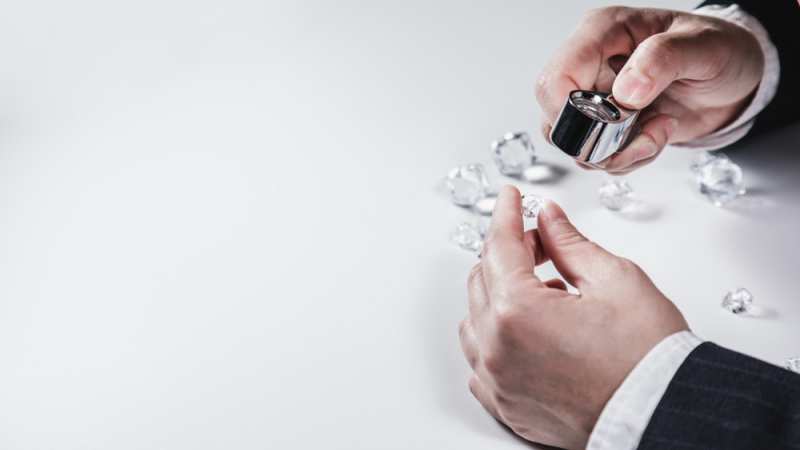
What Is Diamond Certification?
Diamond certification is a detailed document provided by a third-party diamond grading lab. It serves as a comprehensive description of the diamond’s characteristics and is an important factor to consider when purchasing diamonds.
When shopping for diamonds, it is crucial to receive and review the diamond certification alongside each stone. This certificate, also known as a “diamond report,” is issued by a reputable grading lab and provides a thorough analysis of the diamond’s attributes.
Trained professionals utilize specialized equipment to assess and measure the diamond accurately. However, it’s important to note that different labs may have variations in their grading and description methodologies, and these differences can sometimes be significant.
Several grading labs exist, and it is essential to choose a diamond with a certification from a highly reputable and trustworthy lab. Not all diamond grading reports are created equal, so it is not advisable to compare the value and price of diamonds solely based on different certifications. Ensuring the certification comes from a reputable grading lab is crucial when making a diamond purchase.
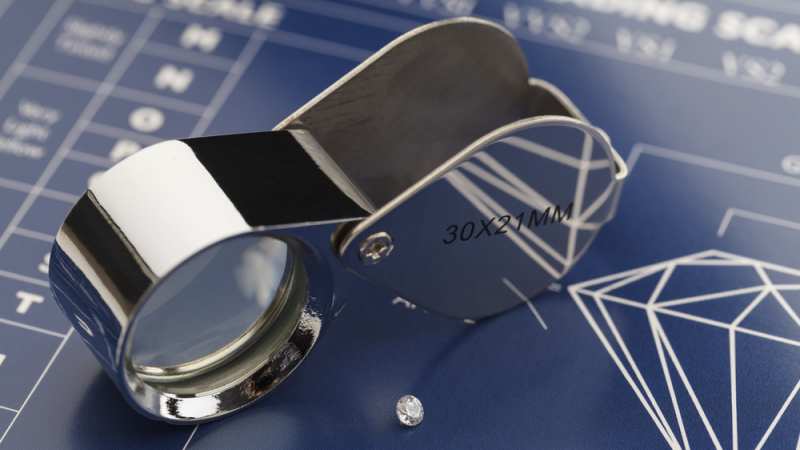
Difference Between Diamond Appraisals And Grading Reports
A diamond certificate provides detailed information about a diamond’s specific characteristics, measurements, and shape. It confirms the authenticity of the diamond and provides details about its cut, carat, color, clarity, proportions, and polish.
The primary differences between a diamond certificate and an appraisal are as follows:
- An appraisal includes additional details about the ring, such as the metals used and the type of setting.
- A diamond certificate does not assign a monetary value to the stone, whereas an appraisal does.
- The information on a diamond certificate remains constant over time as it describes the diamond’s physical properties, while the value of a diamond ring can change over time. Therefore, an appraisal can become outdated.
While a professional appraiser may refer to a diamond grading report for their paperwork, the need for an appraisal is not altered. It serves a distinct purpose in providing a valuation of the diamond, which is separate from the information provided in a diamond certificate.
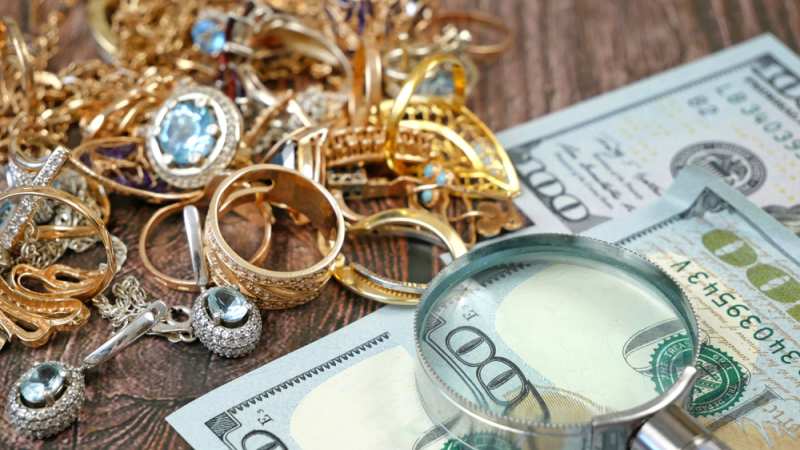
Deeper Dive Into Diamond Appraisals
To help you gain a better understanding of diamond appraisals and be aware of important considerations, we will delve into them in more detail.
Diamond Appraisal Price versus Purchase Price
When purchasing a diamond engagement ring, many jewelers provide an appraisal that values the ring higher than the price you paid for it. While this may initially seem like a good deal, it’s essential to consider the following:
- An inflated appraisal value can be advantageous for insurance purposes, as it may result in a higher settlement if the diamond is lost or stolen.
- However, an inflated appraisal value also means higher insurance premiums, leading to unnecessary expenses over time.
- It’s crucial not to rely solely on a jeweler’s appraisal and instead seek an independent appraiser for an accurate understanding of your diamond’s value.
Diamond Appraisal versus Resale Price
In most cases, the appraisal value of a diamond will be significantly higher than the price you can expect to receive when selling it. Several factors contribute to this difference:
- The appraisal value may represent a “replacement value” rather than the “fair market value” of the diamond.
- Second-hand jewelry pieces generally command lower prices compared to brand new ones, particularly for engagement rings due to the perceived stigma associated with pre-owned rings.
- Retailers need to account for overhead costs and their profit margin when offering to buy diamonds, leading to lower purchase prices.
Conflict of Interest in Diamond Appraisals
When selling your diamond, it is not advisable to rely on the appraisal value provided by the potential buyer. Their interest lies in buying the diamond at a lower price to maximize their profit. Therefore, it’s crucial to obtain an unbiased appraisal from a party without a commercial interest in the transaction.
Finding a Trustworthy Appraiser
When seeking a reliable appraiser, consider the following criteria:
- Gemological Knowledge: Look for an appraiser who has received certification from reputable organizations specializing in gemstones, such as GIA. They should possess expertise in assessing diamond quality based on the 4Cs.
- Understanding of Jewelry Manufacturing: An appraiser with knowledge of jewelry production will provide a more accurate appraisal, particularly if your diamond is set in an engagement ring or another piece of jewelry.
- Experience as a Diamond Appraiser: Check reviews and ask for references to find an appraiser with specific experience in diamond appraisals. Someone specializing in diamonds for a few years may be more suitable and qualified than a jewelry appraiser with a longer tenure but a focus on antique jewelry.
- Credentials from Professional Associations: Inquire about credentials and certifications obtained through reputable appraisal associations. This information will help you assess an appraiser’s qualifications and adherence to ethical guidelines.
By considering these factors and selecting a trustworthy appraiser, you can ensure an accurate assessment of your diamond’s value.
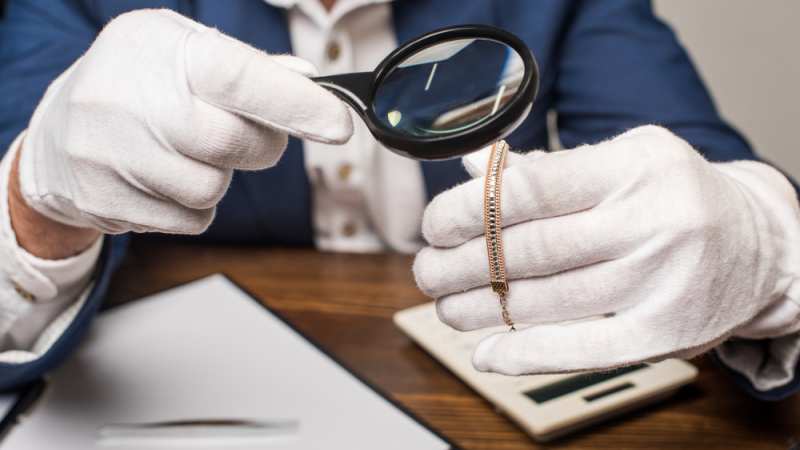
Conclusion
So, when it comes to diamond appraisal vs. diamond certification, it’s important to understand their distinct purposes.
Diamond certification provides a comprehensive document issued by a diamond grading lab that describes all the characteristics of the diamond. It serves to ensure the quality and authenticity of the diamond.
On the other hand, diamond appraisal focuses on determining the value of the diamond based on its characteristics. It is particularly useful when you intend to sell your diamond and need to know its market value.
In summary, if you want to ensure the quality of your diamond, obtaining a diamond certification is recommended. However, if you are interested in knowing the monetary value of your diamond for selling purposes, obtaining a diamond appraisal is more suitable. Both serve different purposes and can be valuable in their respective contexts.


